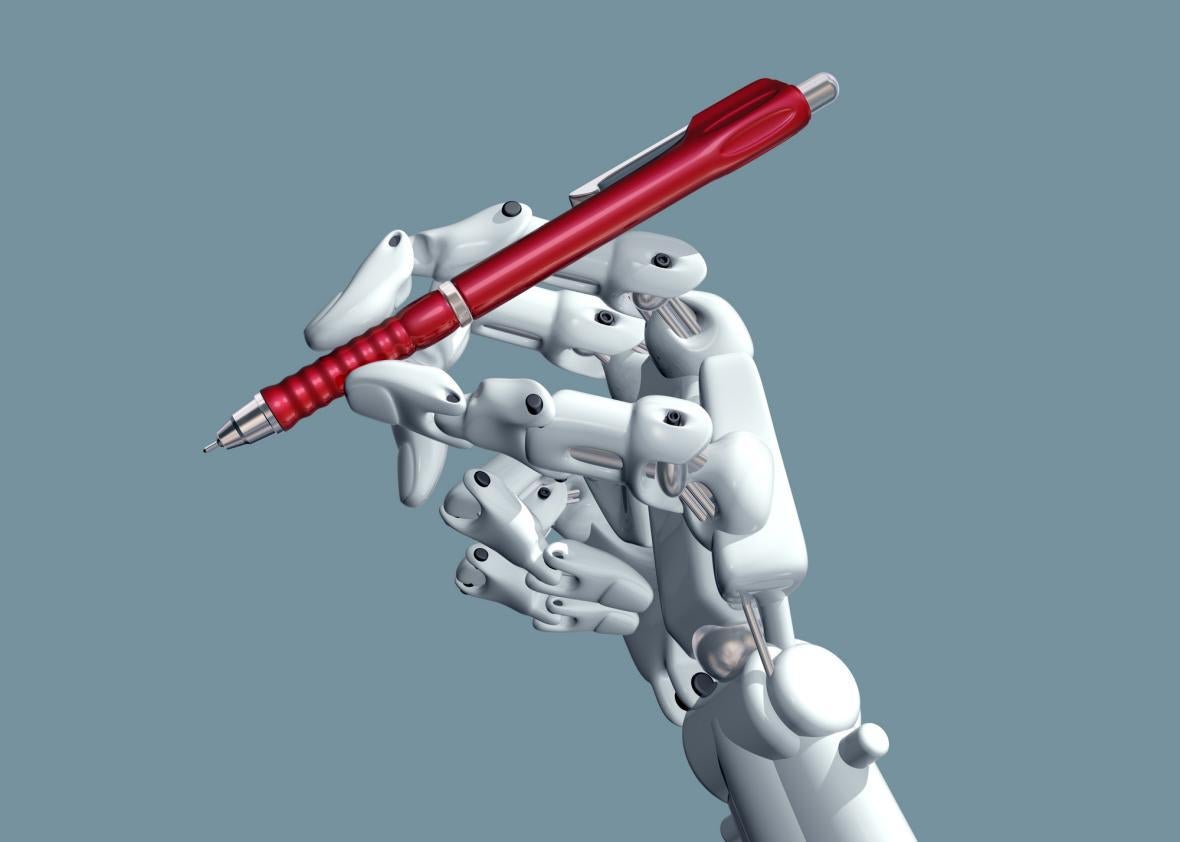The crow crooked on more beautiful and free,
He journeyed off into the quarter sea.
his radiant ribs girdled empty and very –
least beautiful as dignified to see.
That’s not the work of a beginning creative writing student trying to get away with using an adjective as a verb. It was written by a computer algorithm that learned how to write verse after being fed more than 7 million words from online books of 20th-century poetry.
A recent New Scientist article examines the work of Jack Hopkins, the London-based computer scientist behind the algorithm. The algorithm works by stringing related words together within lines (or across lines in the case of rhyme) and then self-checking to see if the content seems related enough within certain sections of the poem. If a section fails to pass a check, the system will rewrite it. Hopkins also set a parameter on the program that limits the poem writing to certain themes or meters.
The results are surprisingly convincing to nonpoets. In a quiz that Hopkins designed to test the algorithm, respondents were only able to guess that the computer-generated poems had been written by a computer 46.2 percent of the time.
The concept calls to mind “The Poetry Cloud” by Liu Cixin, a surreal short story that also has a computer that is programmed to write poetry. (It’s not available online currently, but a print version can be found in the December 2012 edition of the literary journal Renditions.) In the story, humans are the weaklings of the solar system. Their planet has been colonized, and they are essentially at the mercy of other species. In an attempt to convince a godlike alien that something from human culture is worth saving, the main character, Yiyi, presents the extraterrestrial with Chinese poetry. The being is perplexed by poetry and sets out to understand it by trying to pen his own. He goes as far as to take the form of Li Bai, an ancient Chinese poet whose work he admires, in order to better understand human emotions and write poetry. The alien, who rechristens himself after Li Bai, desperately wants to outdo the ancient poet. When he is frustrated by his own failures to compose poetry, he decides to entrust the matter to a computer. “The two ways to surpass Li Bai are: 1. to write poems that surpass his; 2. to write every possible poem!” he declares.
Just as Hopkins’ program does, the alien focuses on form. He decides that his computer “will write every possible pentasyllabic and heptasyllabic poem, which were the original Li Bai’s strong suit. I’ll also compose all possible lyrics to the common classical tunes!” He succeeds rather too well in his second goal: The alien ends up destroying the entire solar system in order to have enough space to store all of his poems.
Naturally, there are several areas in which “The Poetry Cloud” and the poem-writing A.I. program depart. Hopkins did not work with Chinese poetry, for example, though his study cites researchers who have worked in that area. And Hopkins’ efforts to design a program that writes poems focus on quality, not quantity.
The poetry generated by Hopkin’s program may stand up to a test by a casual reader. However, when the New Scientist asked modern-day poet Rishi Dastidar to evaluate the poetry, he was critical of the work produced. Hopkins’ algorithm was trained on poetry that relied more on form than most modern poets, who largely “stopped thinking about these things seventy years ago,” Dastidar told the New Scientist. But he says that things like innovation cannot be expected from a machine that has just been taught to imitate forms. Dastidar also critiques the AI poems for lacking deeper meaning.
In a way, Dastidar and the alien Li Bai reach similar conclusions. Once the alien Li Bai has created billions of poems, he then realizes that he has no way to judge their quality and determine which of them are good. “Since the ultimate poetry composition began, I have been working on the poetry recognition software. However, technology met again with that unsurpassable obstacle in art, and a program which can appreciate ancient poetry is yet to be written,” he laments.
Both the article and the story seem to arrive at the conclusion that while a well-programmed machine can pen lines that sound poetic, there’s some essence of poetry that a machine can’t capture. Still, even if Hopkins’ A.I. program never quite meets all of the standards of human poetry, at least we know that it won’t end up consuming the solar system and extinguishing the sun in the process.
